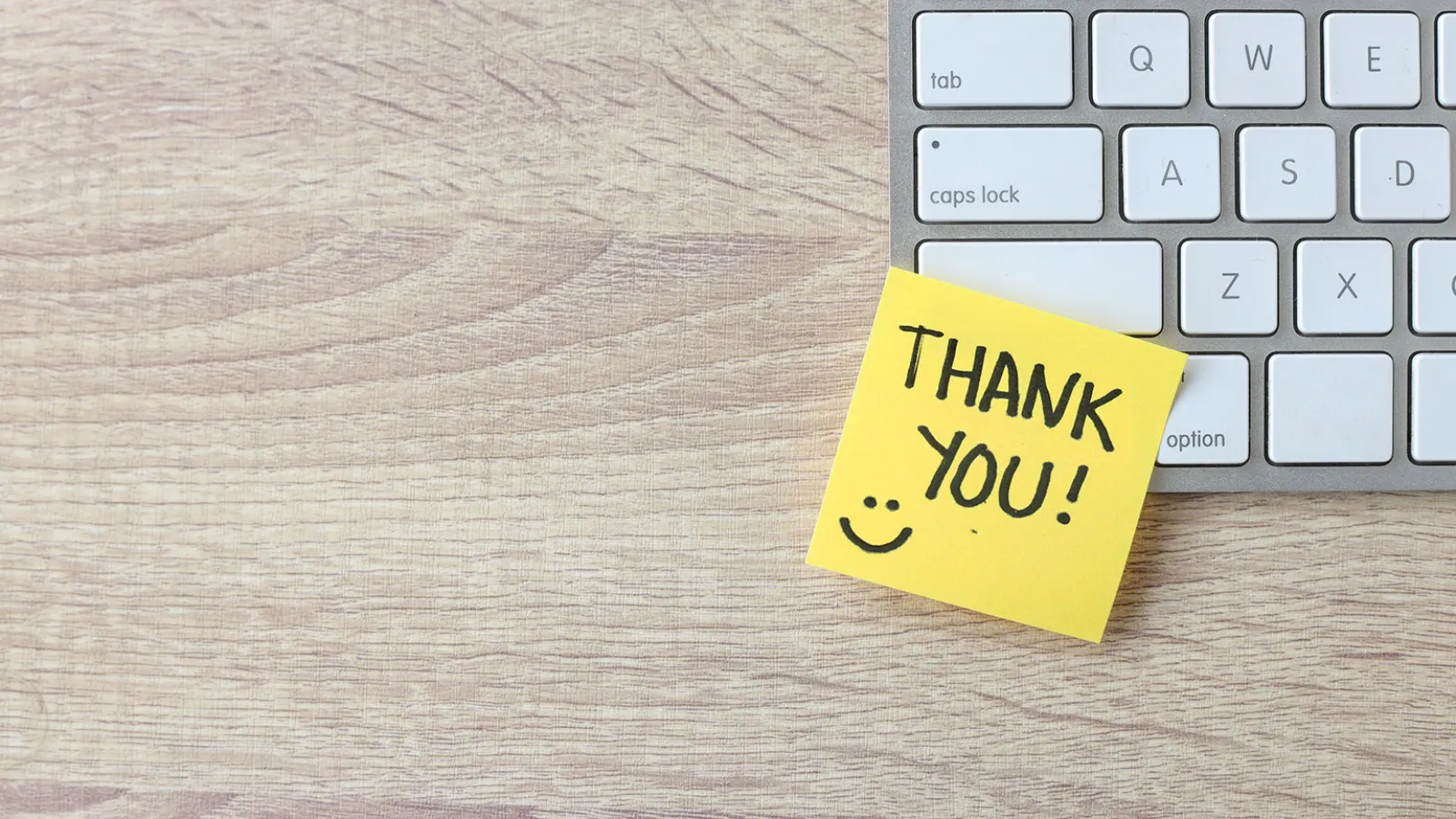Writing a thank you note following an interview is more than a simple courtesy. It’s an opportunity to show your interest in the role, reinforce your qualifications, demonstrate your soft skills, and build professional relationships. Here’s how to write a great one.
Show Your Soft Skills in Action
Thanking the interviewer signals that you value others’ time, are prompt with follow-up, and know how to communicate appropriately. Send your note immediately following the interview, and keep your message brief, warm but professional, and clear of typos. (Use spell and grammar check—and then double check! Our communications team uses the Grammarly add-on for email.)
Reinforce Your Qualifications and Demonstrate Your Interest
Use the note as an opportunity to (briefly) expand upon key points from the interview. Reference specific details from the conversation to reiterate how your skills and abilities match what they are looking for. If there is a point you wish you had hit better during the interview, this is the perfect time to clarify. You’ll also show that you are attentive to detail, can process information quickly (more soft skills), and are genuinely interested in the position.
Build the Professional Relationship
A thank you note shows that you know the value of building professional relationships and keeps the lines of communication open once the interview is over. If you are at the second interview or later and haven’t done so already, use the thank you to ask about timelines or next steps and invite further questions from the interviewer. Even if you interviewed with a recruiter or someone you won’t work with directly, a good rapport will only expand your network and keep you top of mind for future opportunities.
What If It’s a Panel Interview?
The same rules above apply. If it is a large panel (more than four), sending a group email is fine. But with smaller groups, reach out to each person individually and customize your message to the specific topics you discussed with them.
Would a Handwritten Thank You Be More Personal?
Handwritten notes may seem like a nice touch but hiring moves at the speed of digital. A well-written email sent promptly after the conversation will make a better impression than a handwritten note in the mail days or weeks later.
Related Resources
Hopefully, you’ll be moving on to the next step following your interviews. Here are two quick guides to help you prepare:
- Job Searching 101: How To Choose and Prepare Your References
- Job Searching 101: How To Get the Offer Negotiation Right
And if you want to improve your job search and interview strategies overall, read the Staffing Advisors Guide to Senior Executive Job Search for tips on developing your career narrative, writing a resume that gets attention, and interview strategies that work.
